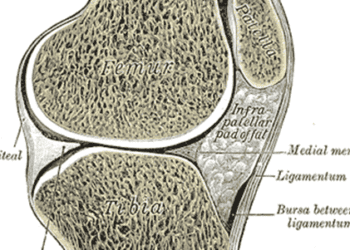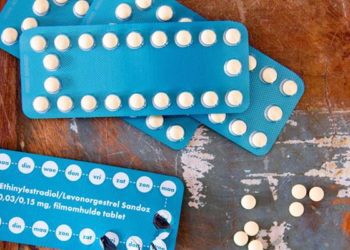Postmenopausal weight changes linked with increased risk of fractures
1. A retrospective review of data from the Women’s Health Initiative found that both postmenopausal weight gain and weight loss were associated with an increased risk of fractures.
2. Although both intentional and unintentional weight loss increased fracture risk, the pattern of fractures in postmenopausal women differed by intentionality of weight loss, with hip fracture incidence increased among those with unintentional weight loss but decreased among those with intentional weight loss.
Evidence Rating Level: 2 (Good)
Study Rundown: Traditionally, lower body weight has been considered a risk factor for fractures in postmenopausal women. However, recent studies have shown that a large number of obese postmenopausal women also sustain fractures. The authors of this study aimed to determine how weight changes after menopause affect fracture risk, and whether or not this risk was any different if the weight loss was intentional or unintentional. Data on body weight and fractures for over 120,000 postmenopausal women were gathered from the Women’s Health Initiative between 1993 and 2013. The authors found that both weight loss and weight gain lead to increased risk of fractures, however, increases in fractures were often in different parts of the body. For example, while women with weight gain had an increased incidence of upper and lower limb fractures, women with weight loss had an increased incidence of hip, upper limb, and central body fractures. Additionally, the fracture pattern differed based on whether or not the weight loss was intentional; specifically, while the hip fracture incidence was increased among those with unintentional weight loss, it was decreased among those with intentional weight loss.
This study had a strong study design as it used a large sample size and also adjusted for many possible confounding variables in the regression model, including baseline frequency of falls, steroid prescription, and cancer diagnosis. A notable limitation is that both weight loss intentionality and fractures (except for hip fractures) were self-reported and may have been subject to recall bias depending on weight change. Overall, these findings contribute to the literature by suggesting that increased weight may indeed not be a protective factor for fractures. Further, physicians should be aware of the impact of weight loss on increased fracture risk among postmenopausal women when counseling for weight loss.
Click to read the study in the BMJ
Click to read an accompanying editorial in the BMJ
Relevant Reading: Obesity and fractures in postmenopausal women
In-Depth [retrospective cohort]: 120,566 postmenopausal women (age 50-79) who were part of the Women’s Health Initiative Observational Study and Clinical Trials (1993-2013) were analyzed for change in body weight and fracture risk over the study period. Weight change was defined as greater than or equal to 5% change in body weight over 3 years. Intentionality of weight loss (intentional vs. unintentional) was determined by self-assessment. All fractures were self-reported except for hip fractures which were confirmed by medical records. Cox proportional hazard regression models adjusted for 15 variables including age, co-morbidities, calcium and vitamin D intake, and baseline body mass index (BMI). Weight gain was associated with a 10% higher incidence of upper limb fractures and 18% higher incidence of lower limb fractures. Weight loss was associated with a 9% higher incidence of upper limb fractures, 30% higher incidence of central body fractures, and a 65% increased incidence of hip fractures (adjusted hazard ratio 1.65, CI95% 1.49-1.82). While unintentional weight loss was associated with an increased incidence of hip fractures, intentional weight loss was associated with a decreased risk of hip fractures (adjusted HR 0.85, CI95% 0.76-0.95).
More from this author: Unhealthy food cues prominent in children’s programming in the UK and Ireland, BCG vaccine protective against active tuberculosis in children, Smokers’ support for plain tobacco packaging linked to desire to quit, Use of weight reduction interventions for overweight and obese patients limited in UK primary care, Outdoor walking groups have wide-ranging health benefits
Image: PD
©2015 2 Minute Medicine, Inc. All rights reserved. No works may be reproduced without expressed written consent from 2 Minute Medicine, Inc. No article should be construed as medical advice and is not intended as such by the authors, editors, staff or by 2 Minute Medicine, Inc.





![Endostatin directly binds androgen receptors to treat prostate cancer [PreClinical]](https://www.2minutemedicine.com/wp-content/uploads/2015/01/Endostatin-75x75.jpeg)
![Active smoking cessation intervention may provide tangible results [Project CLIQ]](https://www.2minutemedicine.com/wp-content/uploads/2014/12/smoking-e1418644951268-75x75.jpg)
